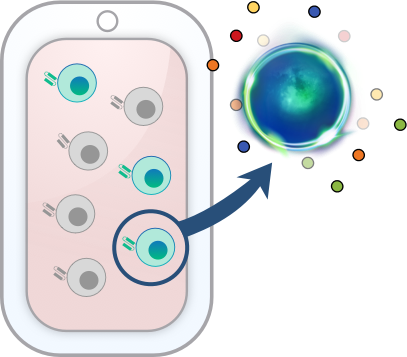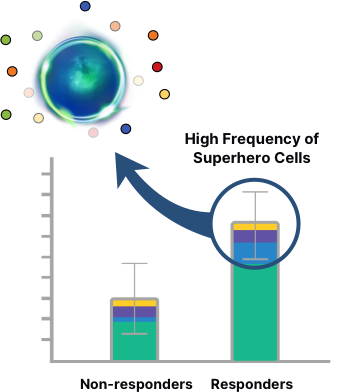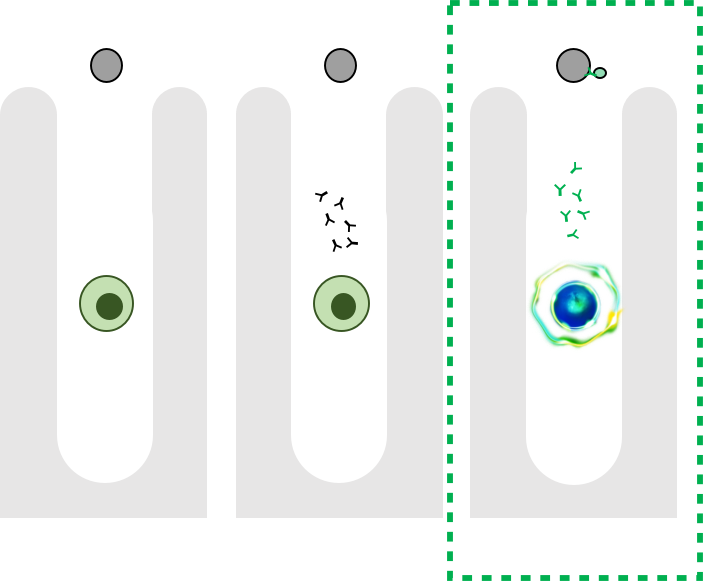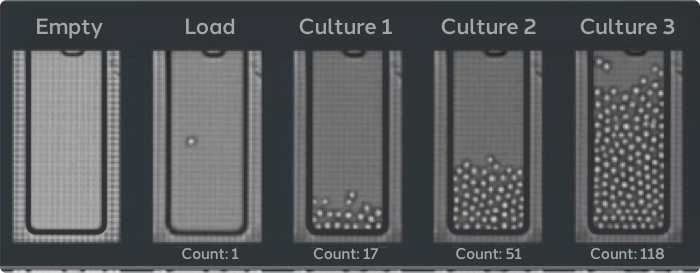Precision Development and Bioprocessing Are Creating the Next Generation of Potent Cellular & Regenerative Medicine
Cell &
Gene Therapy
Accelerate Research with Bruker Cellular Analysis
Bruker Cellular Analysis technology detects the highly polyfunctional cell subsets, typically missed in bulk, that correlate to in vivo outcome in cellular and regenerative medicine. Isolating these differences helps researchers engineer the potency and durability needed throughout development & bioprocessing.
The ability to measure the direct function of immune cells is critical to predicting persistence, potency, and patient response in CAR-T products prior to development and clinical testing. Bruker Cellular Analysis' functional proteomics platform provides critical insights into preclinical model performance by identifying the superpowered cells and mechanisms driving curative medicines across a range of complex diseases. In a recent study, Bruker Cellular Analysis' single-cell functional proteomics was used to evaluate the polyfunctionality of a CAR-T product and revealed the enhanced polyfunctionality, which correlated to improved anti-tumor activity, increased persistence, and decreased exhaustion.



Because immune cells have a wide range of functions, characterizing each individual cell is critical to guide engineering and manufacturing iterations of cell products. Driving key immune mechanisms, superpowered cells are associated with improved clinical performance of cell therapy products. In cutting edge CD19 and CD22 Bi-specific CAR Study, Bruker Cellular Analysis' single-cell functional proteomics demonstrated predictive early signs of response vs. relapse in various types of patients.

Predicting patient response to cell therapy has been a major challenge. Biomarkers that allow clinicians to stratify patients into responders and non-responders and to identify those with an increased risk of suffering from adverse side effects, such as immunotoxicity, is therefore urgently needed. In a 20 patient non-Hodgkin lymphoma CAR-T study, the frequency of highly functional cells of each CAR-T cell therapy product, measured by Bruker Cellular Analysis' single-cell functional proteomics, predicted response where flow Cytometry and Bulk ELISA were unable to.



Biologic drug discovery commonly necessitates the creation of therapeutic antibodies against specific targets. Bruker Cellular Analysis' Plasma B Discovery workflow on the Beacon platform identifies and employs functionally relevant clones to accelerate antibody development timelines.
Creating biotherapeutics requires clones from a single progenitor to serve as protein factories. In this publication, researchers used Bruker Cellular Analysis' Beacon platform to generate cell lines with >99% monoclonality assurance while saving time and reducing hands on labor.


Publications
Publications highlight customer breakthroughs across research and medicine.

Case Studies and Resources
Stay at the cutting edge of science and medicine with case studies, literature and resources



